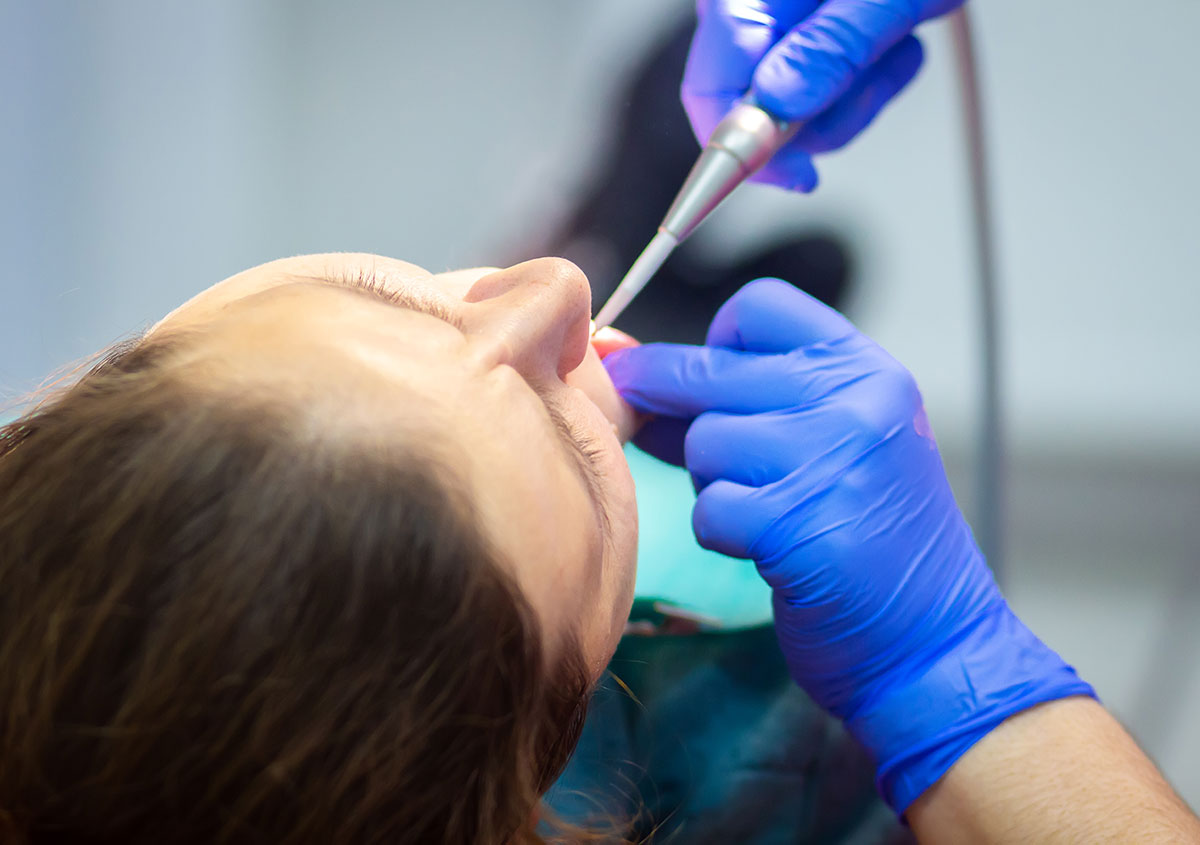IV Sedation Dentistry vs General Anesthesia
Many patients fear going to the dentist or avoid dental procedures because of anxiety. Not getting the dental care you need, however, can have serious oral health and overall health consequences. New sedation options are helping many patients to now successfully overcome fear, anxiety and discomfort.

With sedation dentistry, medication is used to help patients stay relaxed throughout dental procedures. Sedation can also help prevent pain and reduce the ability to remember the procedure when it’s completed. Though, many patients confuse IV sedation dentistry with general anesthesia, and there are some big differences between these two options. Here’s a closer look at how IV sedation and general anesthesia work. We’ll also review the benefits for each and dental procedures for which they would be recommended.
IV Sedation
IV sedation involves administering a sedative through a vein, enabling the medication to take affect very quickly. Because it’s administered intravenously, the dentist can adjust the level of IV sedation as needed for the procedure. This also makes it easy to tailor the amount of sedative used for each specific patient, reducing the risk of complications and side effects.
What Does IV Sedation Feel Like?
Most patients feel calm and sleepy. They usually remain in a semi-awake state and are still able to communicate with the dentist, though most patients have little or even no memory of the procedure when IV sedation is used.
When Should IV Sedation Be Used?
IV sedation is often recommended by dentists for oral surgery procedures to make it easier to relax during long cosmetic or reconstructive dental treatments. This often includes implant placements and wisdom tooth extractions. IV sedation may also be advised for less invasive dental treatments in order to help patients with extreme anxiety.
Read more about Which Dental Procedures Can Be Performed Under Sedation.
What Are the Benefits of IV Sedation Dentistry?
Some of the advantages of IV sedation dentistry include:
- It delivers a stronger sedative effect. When compared to oral sedation or inhalation sedation, IV sedation offers a higher level of sedation.
- The effect is felt quickly. Since drugs are administered intravenously, they begin to take effect quickly. Oral sedatives, for example, can take an hour or more to act.
- Patients can recover faster. Patients generally have a shorter recovery time with IV sedation than they do with oral sedation or general anesthesia.
- Eases severe anxiety – Even patients dealing with severe anxiety can benefit from IV sedation, since it delivers a stronger level of sedation.
- Produces temporary amnesia. Amnesia is a common side effect of the medications used for IV sedation, so patients rarely remember the dental procedure.
- Reduces the gag reflex. For patients with a sensitive gag reflex, the IV sedation can help to suppress that reflex, making dental treatment easier and more comfortable.
- Allows patients to remain conscious. Patients stay conscious during this type of sedation, making it a great alternative to general anesthesia.
Learn more about the Benefits of Sedation Dentistry.
General Anesthesia
General anesthesia uses a combination of inhaled gasses and intravenous medications to make patients completely unconscious. While under anesthesia, patients are unable to respond or feel any pain during a medical procedure. These days, full anesthesia is not used often for dental procedures.
When Should General Anesthesia Be Used?
Because IV sedation and other methods of sedation dentistry are so effective, general anesthesia isn’t used for a lot of dental procedures anymore. Yet it can be useful or indicated in some specific situations.
- If you have a high tolerance for medications used for IV sedation, you may need general anesthesia for dental procedures when sedation would be otherwise used.
- In rare cases, for extremely anxious individuals who are unable to cooperate when sedated, general anesthesia may be used for dental procedures.
- For traumatic dental procedures, such as the extraction of wisdom teeth completely impacted or covered in bone, general anesthesia may be the preferred option.
- General anesthesia may be recommended for other types of complex oral surgery.
Wondering When You Should Ask Your Dentist for Sedation?
Share this Article
Back to Blog Page






